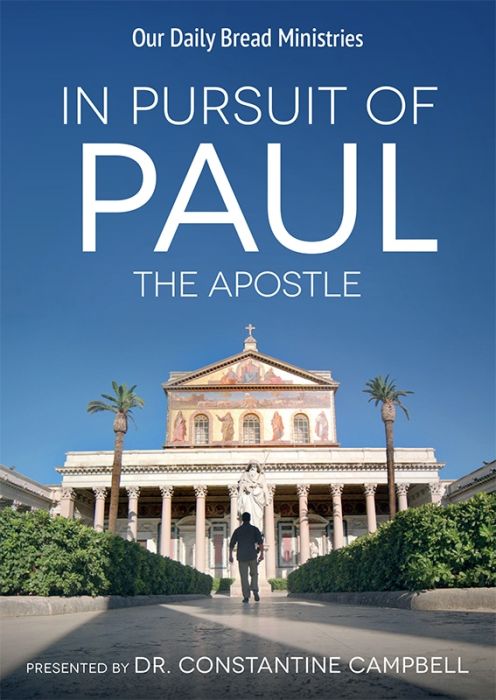Paul–The Old Testament, Luke, and the Old Covenant
Some modern Christians believe the Old Testament (OT) was simply the word of man and is fallible. However, the Apostle Paul viewed the Old Testament as the infallible word of God. How did Paul view the Old Testament, Luke and the Old Covenant? Below, we will use scriptural quotations followed, by comments to show why this is true:
“All Scripture is God-breathed and is useful for teaching, rebuking, correcting and training in righteousness, so that the servant of God may be thoroughly equipped for every good work.” (2 Timothy 3:16-17)
Paul affirms God’s active involvement in the writing of Scripture through his holy Spirit, including the Old Testament, an involvement so powerful and pervasive that what is written is the infallible and authoritative word of God.
Paul’s view of Luke’s writings and the Old Testament
“For Scripture says, ‘Do not muzzle an ox while it is treading out the grain,’ and ‘The worker deserves his wages.’[” (1 Timothy 5:18)
The use of this term (Scripture says) for both an OT (Deuteronomy 25:4) and a New Testament (NT) (Luke 10:7) quote shows that by this time portions of the NT were considered to be of equal authority to the OT. It shows that Paul equated the words of Jesus quoted from Luke 10:7 to Old Testament scripture, viewing both as the infallible word of God.
Scriptures wrongly applied to appear that Paul did not view OT as infallible
“ Therefore, since we have such a hope, we are very bold. We are not like Moses, who would put a veil over his face to prevent the Israelites from seeing the end of what was passing away. But their minds were made dull, for to this day the same veil remains when the old covenant is read. It has not been removed, because only in Christ is it taken away. Even to this day when Moses is read, a veil covers their hearts. But whenever anyone turns to the Lord, the veil is taken away. Now the Lord is the Spirit, and where the Spirit of the Lord is, there is freedom.” (2 Corinthians 3:12-17)
In verse 13 of 2 Corinthians 3, Paul is not talking about the OT not being infallible. He’s indicating the main purpose of Moses’ veil was to prevent the Israelites from observing the fading of the Old Covenant glory. The law was designed by God with a built-in obsolescence. “The Law was our tutor to bring us to Christ” (Galatians 3:24-25 NKJV; Hebrews 8:13) In verses 14 and 15, the veil that prevented the Israelites from seeing the fading of the glory on Moses’ face was like first century Jews who didn’t believe the gospel and were unable to recognize the fading, temporary nature of the old covenant – even when the Scriptures were read. In verses 16 and 17, only by turning to the Lord Jesus Christ can the veil be removed and the death sentence of the law be replaced by the free, life-giving grace of the new covenant.
“If perfection could have been attained through the Levitical priesthood—and indeed the law given to the people established that priesthood—why was there still need for another priest to come, one in the order of Melchizedek, not in the order of Aaron?” (Hebrews 7:11) “The former regulation is set aside because it was weak and useless (for the law made nothing perfect), and a better hope is introduced, by which we draw near to God.” (Hebrews 7:18-19)
Here, the apostle Paul, in Hebrews is speaking about the inadequacy of the Mosaic Law to bring perfection, and about the complete redemption available through Christ’s priesthood through the new covenant, and is not saying the OT is fallible. Just the opposite – Paul is using the OT as inspired truth.
“For if there had been nothing wrong with that first covenant, no place would have been sought for another. But God found fault with the people and said: ‘The days are coming, declares the Lord, when I will make a new covenant with the people of Israel and with the people of Judah. It will not be like the covenant I made with their ancestors when I took them by the hand to lead them out of Egypt, because they did not remain faithful to my covenant, and I turned away from them, declares the Lord.'” (Hebrews 8:7-9) “By calling this covenant ‘new,’ he has made the first one obsolete; and what is obsolete and outdated will soon disappear.” (Hebrews 8:13)
The Sinaitic Old Covenant, not the Old Testament, was obsolete and no longer useful due to its replacement by the New Covenant. The Bible, and the Apostle Paul, are not at all saying anything about the Old Testament books being fallible, it is the Old Covenant that is obsolete. The apostle Paul viewed the Old Testament and the book of Luke as scripture, and knowledge of the Old Covenant as useful, but its laws are no longer binding.
